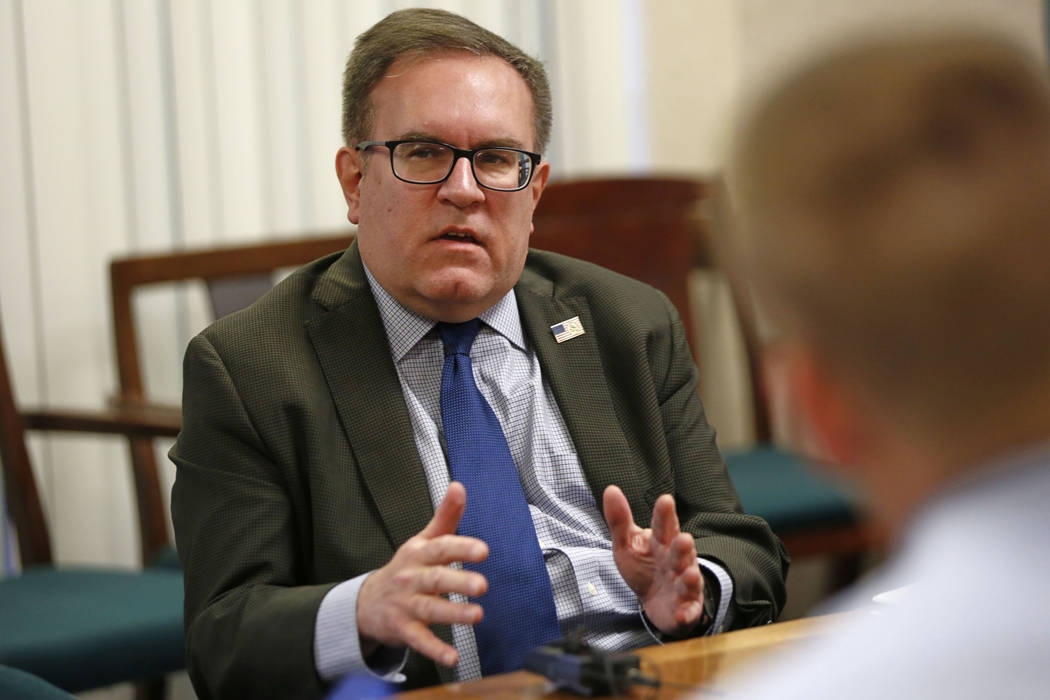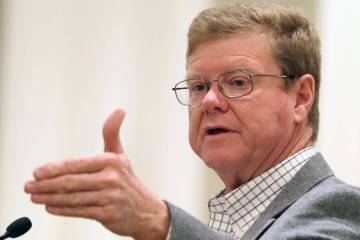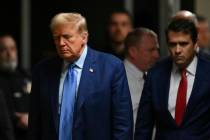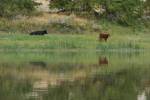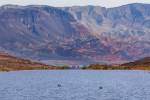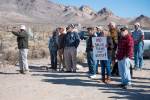Trump administration OKs new water rule
WASHINGTON — Environmental Protection Agency Administrator Andrew Wheeler signed a new rule Thursday replacing a 2015 definition of “navigable waters” created in the Obama administration that farmers, developers and others found overly restrictive.
The new Navigable Waters Protection Rule advances President Donald Trump’s promise to roll back environmental regulations enacted under his predecessor.
According to the EPA, the new rule will protect the nation’s navigable waters from pollution while specifying that some groundwater, ditches and ponds are not deemed “waters of the United States.”
Wheeler — who repealed the Obama-era rule last year — signed the new rule while attending the National Association of Home Builders’ International Builders’ Show in Las Vegas. It will take effect in 60 days.
In a conference call with reporters Thursday, Wheeler said states will continue to exercise regulatory authority over waters within their borders under a regime that recognizes “the proper balance between Washington, D.C., and the states.”
Greg Ugalde, chairman of the home builders association, hailed the rule as a tool to “boost housing affordability by clarifying the limits of federal jurisdiction over certain ‘waterbodies.’ By excluding most man-made ditches and isolated ponds on private property from federal jurisdiction, the new rule will correct the vast overreach of prior rules, restore common sense to the regulatory process, reduce project costs and maintain environmental protection of our nation’s waterways.”
Leave farms alone
It has been an article of faith for Trump that the key to smart regulation is to enforce clean air and water regulations that maintain quality of life for humans, but to cut back on in-the-weeds rules over ditches and farm wetlands, which he believes produce negligible benefits for the public.
According to the 2018 Environmental Performance index, the United States and nine other countries share the highest drinking water ranking in the word, but the U.S. ranks 10th on air quality.
Last week in Austin, Texas, Trump told a friendly American Farm Bureau crowd that the Obama rule “gave bureaucrats virtually unlimited authority to regulate stock tanks, drainage ditches and isolated ponds as navigable waterways and navigable water. You believe that? Sometimes, you’d have a puddle — a little puddle. And they’d consider that a lake. As long as I’m president, government will never micromanage America’s farmers. You’re going to micromanage your own farm, and that’s the way it should be.”
But Richard Frank, a professor of environmental practice at the University of California, Davis, rejected Trump’s summary.
“That oversimplifies and mischaracterizes the nature of the legitimate debate,” Frank told the Las Vegas Review-Journal.
Rule never applied in Nevada
The Obama-era water rule never applied in Nevada, as then-Attorney General Adam Laxalt joined 12 other states in a successful legal challenge to the rule.
Only 22 states were operating under the old rule when Wheeler pulled the plug last year.
“This sickening gift to polluters will allow wetlands, streams and rivers across a vast stretch of America to be obliterated with pollution,” said Brett Hartl, government affairs director at the Center for Biological Diversity.
The center also predicted the new rule would accelerate the extinction of more than 75 endangered species, including Chiricahua leopard frogs, steelhead trout and yellow-billed cuckoos, and would lead to the destruction of half of the nation’s streams and wetlands.
But Tony Francois, a senior attorney with the Pacific Legal Foundation, a pro-property rights group, said he sees “a lot of hyperbole” coming from environmental groups, as the new rule mostly affects “ephemeral” waters that “only flow when they’re rained on.”
He’s not sure if the rural property owners which his group often represents will see “any relief” from the new rule.
As for Nevada, Francois said, “If there’s a factory or waste treatment plant that’s discharging into Lake Mead, they’re going to need an EPA permit for that.”
Contact Debra J. Saunders at dsaunders@reviewjournal.com or 202-662-7391. Follow @Debra J. Saunders on Twitter.
"I terminated one of the most ridiculous regulations of all: the last administration's disastrous Waters of the United States rule… That was a rule that basically took your property away from you. I'll never forget, at the White House signing, I had probably 30, 35 people behind me — farmers and homebuilders and others — people that haven't cried in many years. People that weren't — some of them were so tough, they never cried. They didn't cry when they were babies. And they were crying."
-President Donald Trump, Jan. 19



